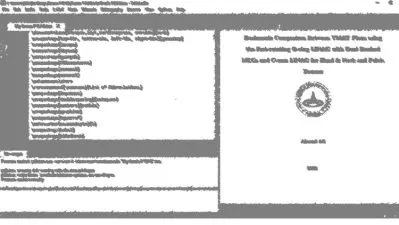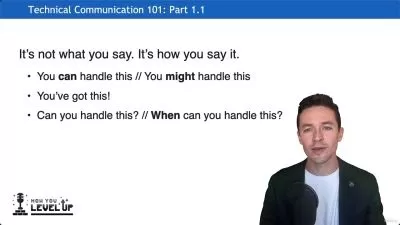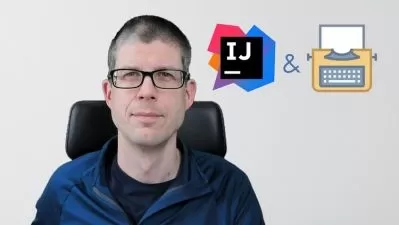About Technical WritingLearn More
Without good technical writing, businesses don’t live up to their fullest potential. Technical writers work as translators between organizations and their audiences, creating user manuals, reports, and supporting literature that outlines new products, services, and technologies.
Sort by:
Sorting
The newest
Most visited
Course time
Subtitle
Filtering
Courses
Subtitle

Linkedin Learning


Annyce Davis
Tech Career Skills: Effective Technical Communication 1:00:04
English subtitles
06/28/2023
Subtitle

The Great Courses


Amanda M. Rosen
Effective Research Methods for Any Project 12:09:44
English subtitles
05/31/2023
Subtitle
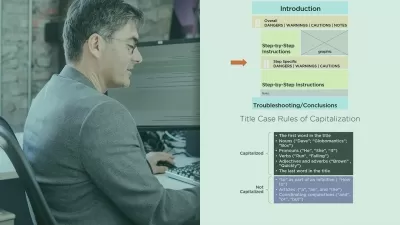
Pluralsight


Alan Ackmann
Writing Process Instructions and Directions 1:02:16
English subtitles
02/19/2023
Subtitle
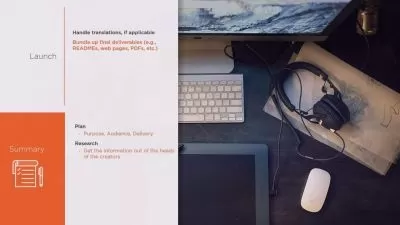
Pluralsight


Amber Israelsen
Technical Writing: Documentation on Software Projects 3:47:23
English subtitles
02/19/2023
Subtitle

SkillShare


Dr. Katharina Grimm
UX Writing: Re-Thinking Accessibility & Inclusion In Microcopy 1:01:44
English subtitles
02/14/2023
Subtitle
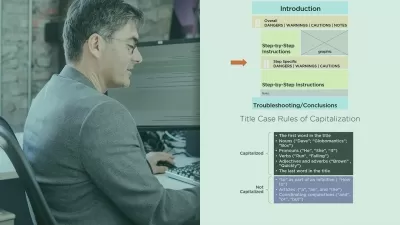
Pluralsight


Alan Ackmann
Writing Process Instructions and Directions 1:02:16
English subtitles
02/05/2023
Subtitle

Pluralsight


Amber Israelsen
Technical Writing: Documentation on Software Projects 3:47:23
English subtitles
02/05/2023
Frequently asked questions about Technical Writing
Technical writing simplifies complex information about a technical subject for people who have to accomplish a task or goal. Traditionally this meant writing user manuals for software and hardware, but now you will find technical writing in web pages, help files, social media sites, or code repositories. A common technical writing topic is computer applications, used to guide new users through the process of using the software to accomplish their tasks. Technical writers also document medical procedures in educational documents, articles, and marketing copy. In fact, technical writing applies to any type of text that provides instructions on how to do something. You will find technical writing in other places, including the aerospace industry, finance, engineering, biotech, energy, and more.
To be a technical writer, you need a few skills. The first is a general ability to write. Good documentation must be clear and to the point, so a technical writer must be able to put complicated concepts into simple words using good grammar. A technical writer must also be comfortable with technology and willing to learn new technologies that they don't understand before they begin the writing process. Along with that, technical writers must be good at research and exploration to thoroughly document processes and procedures they are unfamiliar with. They must also have interviewing skills so they can interact with subject experts. Since they are writing the official documentation, experts on the software or system may be the only source they have for accurate information.
The focus of academic writing is proving a viewpoint in a specific discipline, while technical writing contains detailed instructions on a particular application, product, or service. Academic writing aims to add new knowledge about a field of study to the world and may include the author's personal views. Technical writing offers a solution to a specific problem and helps people complete tasks. It will contain practical, unopinionated information. Academic writers reference other academic papers, use evidence, and offer precedence to win an argument. Technical writers try to change how people do things by teaching them the steps to complete a task efficiently. Academic writing is in the vocabulary of a specific academic field, and technical writing is in the language of a specific technical field.





